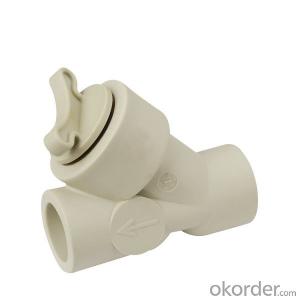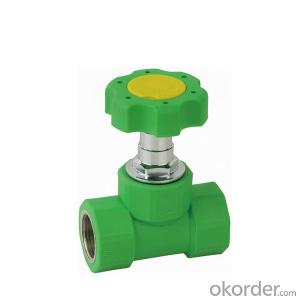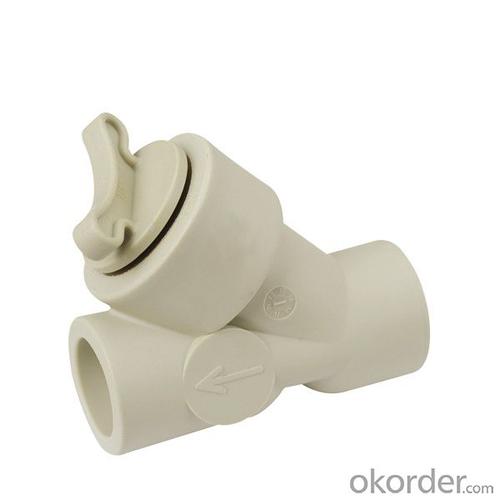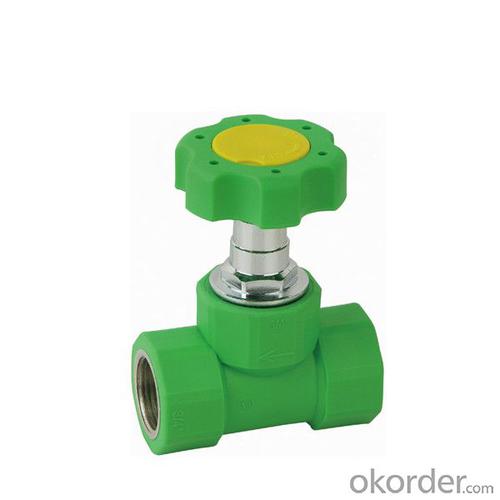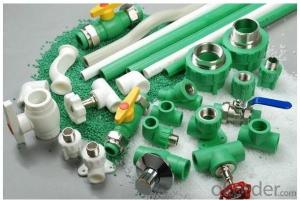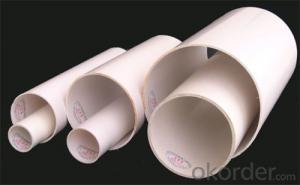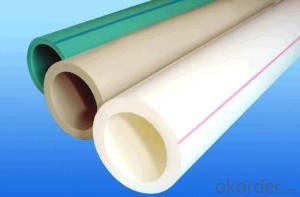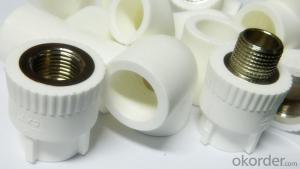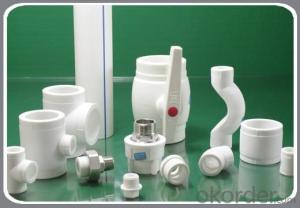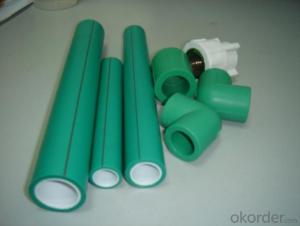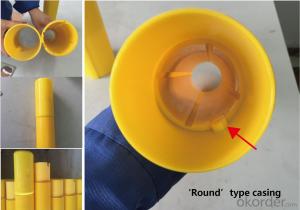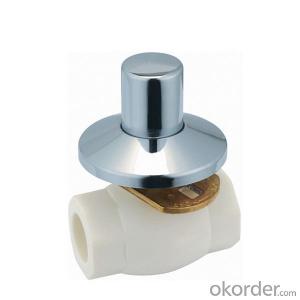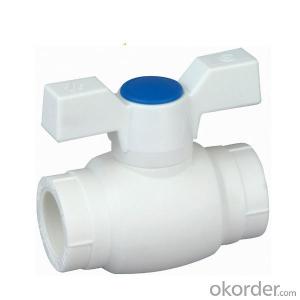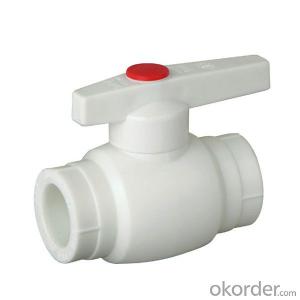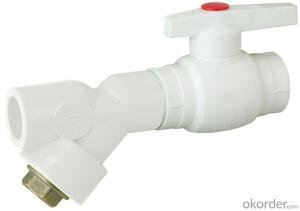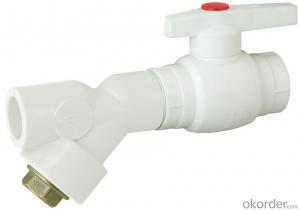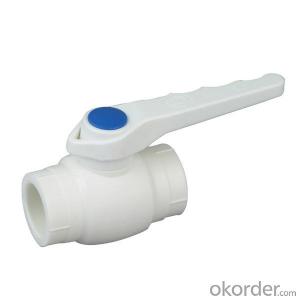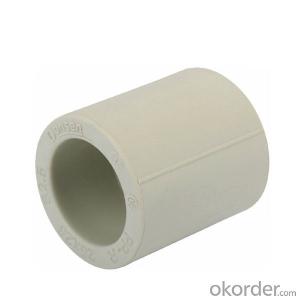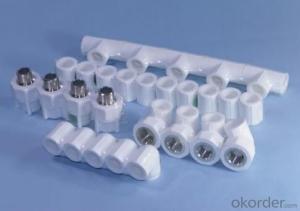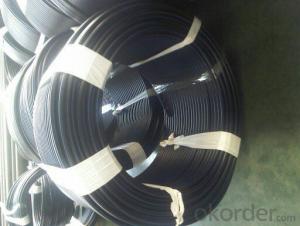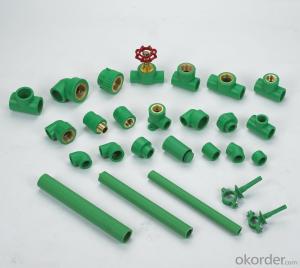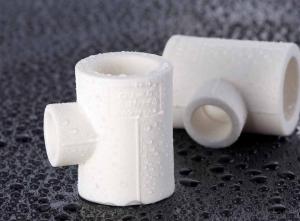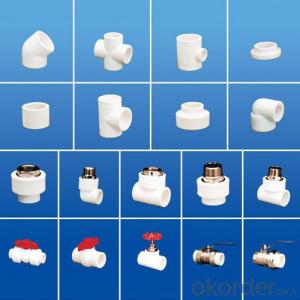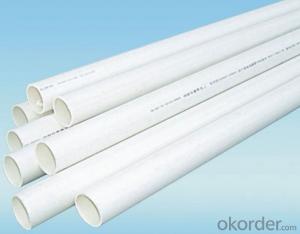Threaded Plastic Pipe Fittings PPR Fittings Straight Radiator Brass Ball with High Standard
- Loading Port:
- China main port
- Payment Terms:
- TT OR LC
- Min Order Qty:
- 200 pc
- Supply Capability:
- 100000 pc/month
OKorder Service Pledge
OKorder Financial Service
You Might Also Like
Specifications:
Standard: ISO
Color: many colors
Application: house and garden
Usage: Family Decoration Industry
Certification: ISO Certificate
Feature: Lightweight
Size: Customized Size
Type: Round
Connection: Butt Fusion
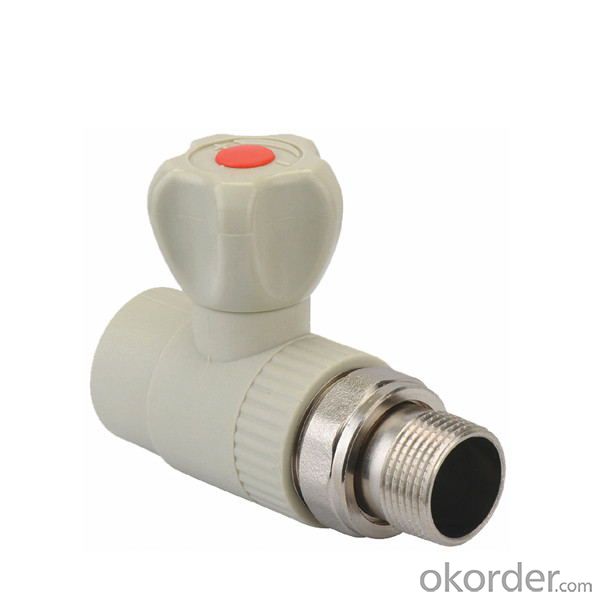
Our service:
Pre-Sales Service
1. Inquiry and consulting support.
2. Sample testing support.
After-Sales Service
1. Training how to instal the machine, training how to use the machine.
2. Engineers available to service machinery overseas.
Applications:
1) Cold / hot water supply facilities for public buildings
2) Food, chemical, electronic industry pipeline networks; Such as Pipeline networks for transporting all kinds of corrosive liquids
3) Drinking water production system pipeline networks; Such as Pure water and mineral water
4) Air conditioning facility pipelines
5) Compressed gas pipeline networks for industry
6) Pipeline networks for swimming pools
7) Pipeline networks for solar energy facilities
8) Agriculture and garden production transporting systems
9) Distribution for cool and hot water
10) Duct for drinkable water system
11) For kinds of high-temperature and low-temperature heating system
12) For heating and cooling settings in solar energy system
13) Connecting pipe for air conditioners
FAQ:
1. Can you find a translator for me?
You can tell us which language you speak, we will find the translator for you, and will be together work.
2. If we want to develop some new item, but maybe we just have some ideas, how can you do?
We can make new mold base on your idea, generally, if your quantity is more enough, we can refund the mold cost to you.
3. How Long Is Delivery?
Delivery time will be 30-45 days according to order quantity.
4.What Is Our Normal Payments Terms?
Our normal payment terms: T/T, L/C or western union.
5.How do we guarantee the quality of our products?
We have established an advanced quality management system which conducts strict quality tests at every step, from raw materials to the final product. At the same time, we provide extensive follow-up service assurances as required.
- Q: Are plastic pipe fittings resistant to ozone?
- Yes, plastic pipe fittings are generally resistant to ozone.
- Q: Can plastic pipe fittings be used in irrigation pivot systems?
- Yes, plastic pipe fittings can be used in irrigation pivot systems. They are commonly used due to their durability, affordability, and resistance to corrosion. Additionally, plastic pipe fittings are easy to install and maintain, making them a popular choice for irrigation systems.
- Q: Are plastic pipe fittings suitable for use in breweries and distilleries?
- Yes, plastic pipe fittings are suitable for use in breweries and distilleries. They are commonly used in these industries due to their excellent resistance to chemicals, corrosion, and temperature variations. Additionally, plastic pipe fittings are lightweight, easy to install, and cost-effective, making them a popular choice for various applications in breweries and distilleries.
- Q: Can plastic pipe fittings be used in water slide systems?
- Yes, plastic pipe fittings can be used in water slide systems. These fittings are commonly made from materials that are resistant to water and chemicals, such as PVC or ABS, which makes them suitable for use in water slide systems. Additionally, plastic pipe fittings are lightweight, durable, and easy to install, making them a popular choice for water slide installations.
- Q: Are plastic pipe fittings resistant to chemicals?
- Yes, plastic pipe fittings are generally resistant to chemicals. They are designed to withstand a wide range of chemicals and are commonly used in various industries where chemical resistance is required. However, the specific level of resistance can vary depending on the type of plastic used and the chemicals involved. It is important to consult the manufacturer or supplier for detailed information on chemical compatibility before using plastic pipe fittings in specific chemical applications.
- Q: Indoor plastic water supply pipe, 20 of the 20 refers to the inside diameter or outside diameter?
- 20 of the indoor plastic water supply pipes, 20 of the diameter, refers to the outer diameter.The water supply pipe is divided into metal pipes, composite pipes and plastic pipes. The metal tube is mainly divided into the copper tube and the stainless steel water pipe. The metal pipe has many characteristics, such as safety, sanitation, durability and so on. It is the most ideal water pipe for the home outfit.
- Q: How do plastic pipe fittings handle seismic activity?
- Plastic pipe fittings have the ability to flex and absorb energy during seismic activity, which helps to minimize the impact of vibrations and ground movement. These fittings are designed to withstand the stress and strain caused by earthquakes, ensuring that the overall integrity of the piping system is maintained. Additionally, plastic materials are lightweight, making them less likely to cause damage or injury in the event of seismic activity.
- Q: Do plastic pipe fittings require any special testing or certification?
- Yes, plastic pipe fittings typically require special testing and certification to ensure they meet industry standards for safety, durability, and performance. This is essential to ensure that the fittings can withstand the intended pressure, temperature, and chemical exposure. Testing and certification processes help identify potential flaws or weaknesses in the fittings and ensure they comply with relevant regulations and standards.
- Q: Are plastic pipe fittings resistant to impact and vibrations?
- Yes, plastic pipe fittings are generally resistant to impact and vibrations. They are designed to withstand normal mechanical stress and movement without cracking or breaking. However, the level of resistance may vary depending on the specific type and quality of the plastic used in the fittings.
- Q: Are plastic pipe fittings resistant to scaling?
- Yes, plastic pipe fittings are generally resistant to scaling.
Send your message to us
Threaded Plastic Pipe Fittings PPR Fittings Straight Radiator Brass Ball with High Standard
- Loading Port:
- China main port
- Payment Terms:
- TT OR LC
- Min Order Qty:
- 200 pc
- Supply Capability:
- 100000 pc/month
OKorder Service Pledge
OKorder Financial Service
Similar products
Hot products
Hot Searches
Related keywords
